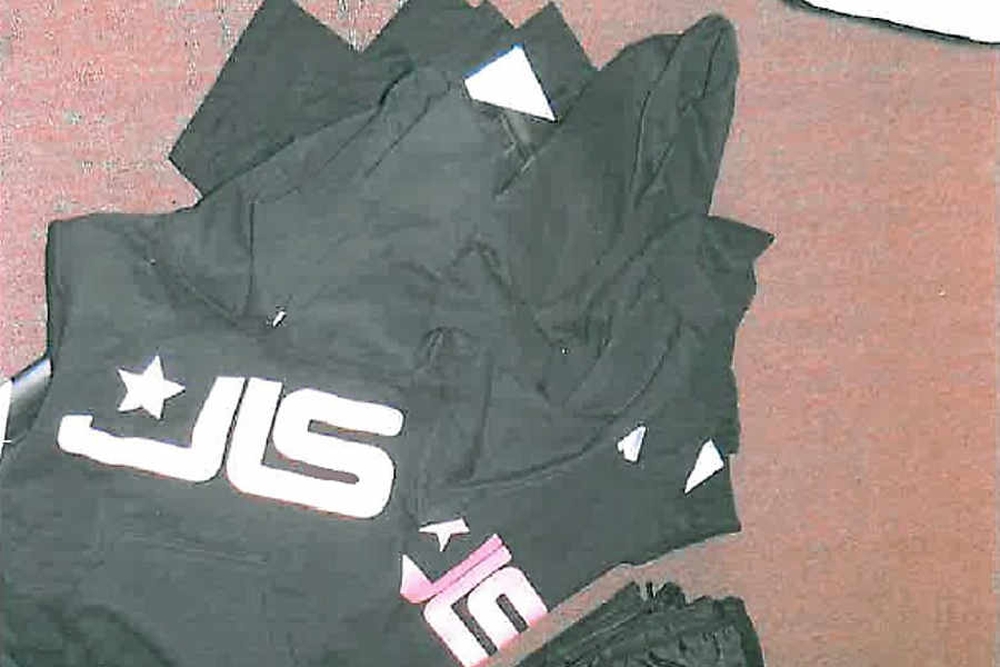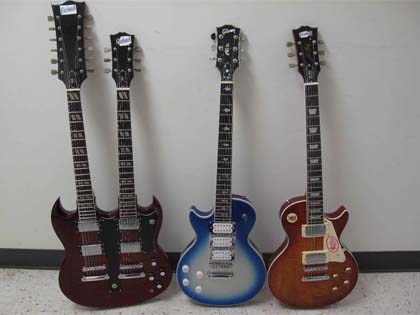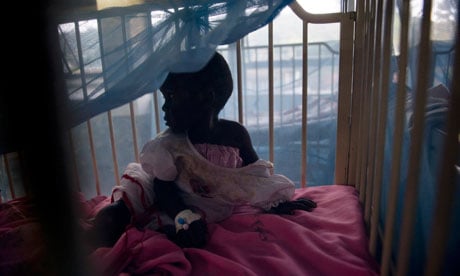
Fake merchandise made in Wolverhampton warehouse
A businessman manufactured hundreds of T-shirts, hooded tops and bags featuring the logos of superstar bands including One Direction, Take That and JLS from his Wolverhampton video and DVD warehouse, a court heard.Stephen Roger Barnett used a heated press machine to transfer the registered trademark of a string of pop stars and groups onto garments.He then sold the goods on the internet auction website eBay, Wolverhampton Magistrates Court heard.Other stars and groups that had their names or logos illegally printed onto products were Jessie J, N-Dubz, Justin Bieber, The Wanted, Boyzone, Lady Gaga and the Ramones. Prosecutor Mrs Donna Smith told the court that in January 2011, Trading Standards officers were contacted by Surelock International Ltd about the defendant’s business selling items that infringed the trademark act.Test purchases were then carried out by the firm in December that year and in the following February, city council Trading Standards officers visited the business, Rogers Video, on the Hilton Trading Estate in Lanesfield. It was then that a range of goods were discovered, including templates and a heat press machine.Barnett, aged 48, told investigators during interview that he had been making the goods for about 18 months. It was estimated that the total loss to the music industry as a result was £4,853. Barnett, of Wro-ttesley Road, Wolverhampton, admitted 20 trademark offences between December 2010 and July last year. Defence solicitor Mr Tony Randle had run his video and DVD firm for about 30 years and decided to sell clothing in December 2010.Magistrates warned Barnett yesterday that his offences could result in custody.He will be sentenced on January 17.
http://www.expressandstar.com/news/2013/01/09/fake-merchandise-made-in-wolverhampton-warehouse/
Lear More
Feds seize suspected counterfeit sports gear at Meridian Mall
·A team of federal agents made a “significant seizure” of suspected counterfeit sports merchandise and apparel in a raid on the Sportz R Us store in Meridian Mall, a U.S. Customs Enforcement spokesman confirmed Thursday. The agents, accompanied by a uniformed police officer from Meridian Township, executed a search warrant Monday morning, according to witnesses, police and Khaalid Walls, a Detroit-based spokesman for the federal agency that operates within the Department of Homeland Security. No arrests were made, but Walls said sports merchandise and apparel were “boxed and hauled off.” “We’ll review the items we have and confirm whether or not they’re authentic,” Walls said. He said documents from the investigation are under seal in federal court, preventing him from commenting on what led agents to believe the merchandise associated with teams from the NFL, NBA, NHL and Major League Baseball was manufactured without payment of the licensing fees the leagues collect. He also declined to quantify the amount of merchandise seized or to speculate on its retail value. “It’s an ongoing investigation,” Walls said. “We’re still in the early stages.” Sportz R Us was incorporated by Terry Harrison in 2007, one year before he incorporated Goin Deep Collectibles in Saginaw, according to state business registration records. The Okemos store was open on Tuesday and Wednesday, but at mid-day Thursday, it was closed and a metal drop-down security gate was in place. Phone calls went unanswered during the morning and early afternoon. An employee who identified himself as Joe Oliver was working alone in the store around 5 p.m. He said he opened for business around 3 p.m. and was not expecting Harrison to join him before closing. He said he came to work Monday afternoon to find much of the store’s merchandise was gone but no one told him it had been confiscated. “I’ve just been told maybe we’re moving,” he said. An employee who answered a call at the Saginaw store Thursday afternoon said Harrison was not there either. The square footage of the Okemos store could not be determined Thursday, but the remaining merchandise appeared to consist primarily of collectibles from toys to banners to sports cards and to be sparsely distributed across the available space. Claudia Bleil, marketing director for the mall, declined to comment on the raid.
Lear More
Man Accused Of Selling Counterfeit Texans Jerseys
A Baytown man has been arrested, accused of selling counterfeit Texans jerseys. According to court documents, on December 10, 2012, Baytown police answered a call about two men selling counterfeit merchandise from a truck parked outside a tobacco store on N. Alexander Drive. A detective dressed in plain clothes approached the two men, and saw that they were selling Texans jerseys for $65 apiece. The detective inquired about a jersey in his size as well as why the jerseys were only $65. The man told the plain clothes detective that he receives the jerseys in bulk and is able to offer the jerseys at reduced prices. The man also told the detective that his purchase of the Texans jersey was a purchase of an authentic jersey. The detective pulled out his phone, snapped a picture of the jersey and left the makeshift Texans jersey shop. That plain clothes detective then sent the photo he snapped to an employee of Nike. That Nike employee told the detective that the jerseys were indeed counterfeit. The detective gathered enough information to seize the items for inspection. After confronting the alleged counterfeit salesman a second time, the man then said that the jerseys were not his and he was simply selling them in an effort to make money for the Christmas holiday. Both Edward Lawrence Williams and Victor Rhodes were identified as the alleged counterfeit salesmen selling the counterfeit Texans jerseys. Additional reports indicate that 41 counterfeit Texans jerseys with Nike emblems were seized which were valued at more than $2,600. While Williams, 46, is charged with trademark counterfeiting, Rhodes is not facing any charges.
http://houston.cbslocal.com/2013/01/10/man-accused-of-selling-counterfeit-texans-jerseys/
Lear More
Customs Agents Pluck Counterfeit Guitars Coming Into O’Hare
Customs officers at O’Hare have seized more than 50 counterfeit guitars. They came in single shipments from China – supposedly well-known brands such as Gibson, Fender, Martin and Taylor, being sold at a fraction of their worth. U.S. Customs and Border Protection officials say officers confiscated the instruments in the last months of 2012, going through the mail at O’Hare. Chief Officer Brian Bell says what looked real didn’t hold up to further inspection. He suspects the influx of counterfeit guitars is due to the growing popularity of the instrument. Customers had paid between $300 and $700 apiece for them. “Counterfeiters will look at what’s in demand,” Bell says. “What do people here want in the United States and what can they reproduce cheaply?” The most commonly seized goods during past holiday seasons include handbags, footwear, apparel, electronics, watches and even Christmas tree lights and electric cords displaying fake Underwriters Laboratory Inc. safety seals, the federal agency said in a news release.
http://chicago.cbslocal.com/2013/01/10/customs-agents-pluck-counterfeit-guitars-coming-into-ohare/
Lear MoreCops bust fake printer ink syndicate
KUALA LUMPUR: Police busted an international syndicate that been raking in millions of ringgit by supplying fake Hewlett Packard printer ink to Middle East and African countries with the arrest of a Singaporean. Federal Commercial Crime Department director Datuk Syed Ismail Syed Azizan said police made their move following information from HP representatives in the United States.“HP made a statutory declaration (SD) on the case and we launched our investigation after we receiving the SD,” Syed Ismail said.It was understood that the SD was necessary in investigations involving copyright issues.He said police moved in on the main suspect, a 38-year-old Singaporean, and seized two boxes of ink cartridges from him. The suspect who is married to a local, then took police to his condominium unit in Brickfields.“There we seized several documents and a computer,” Syed Ismail said.He said the suspect then led police to an industrial area in Bukit Permai Utama, Ampang where the fake ink was produced and packed using HP packaging.Police arrested a 48-year-old local woman believed to be the man’s business partner and 11 Myanmar workers at the premises.“We also seized 252 boxes of of ink cartridges, computers and documents,” he said.He said initial investigations, based on the seized documents, revealed that the syndicate had been operating for two years. Their main clients were in Bahrain and Tunisia.“We also believe that they used re-cycled ink cartridges to distribute their products,” Syed Ismail said.He said the Singaporean was arrested last year for the same offence. It was a joint operation between police and the Ministry of Domestic Trade and Consumers Affairs.“They handled the investigations. We do not know what happened to that case,” he said, adding that police will be working closely with HP on this case.All those arrested are being investigated for infringement under the Section 41(1) of Copyright Act 1987. They can be fined a maximum RM20,000 for each copy seized, a maximum of five years’ imprisonment, or both.
Lear More
Chinese man pleads guilty in $100 mln stolen software sting
In a case U.S. officials say is the first of its kind, a Chinese businessman pleaded guilty Monday to selling stolen American software used in defense, space technology and engineering – programs prosecutors said held a retail value of more than $100 million.The sophisticated software was stolen from an estimated 200 American manufacturers and sold to 325 black market buyers in 61 countries from 2008 to 2011, prosecutors said in court filings. U.S. buyers in 28 states included a NASA engineer and the chief scientist for a defense and law-enforcement contractor, prosecutors said.Corporate victims in the case included Microsoft, Oracle, Rockwell Automation, Agilent Technolgoies, Siemens, Delcam, Altera Corp and SAP, a government spokesman said.U.S. officials and the Chinese man’s lawyer, Mingli Chen, said the case was the first in which a businessman involved in pirating industrial software was lured from China by undercover agents and arrested.The businessman, Xiang Li, of Chengdu, China, was arrested in June 2011, during an undercover sting by U.S. Department of Homeland Security agents on the Pacific island of Saipan, an American territory near Guam.Video from the undercover meeting in Saipan, filed as evidence in court, is expected to be made public during a press conference Tuesday by John Morton, director of U.S. Immigration and Customs Enforcement, and Charles M. Oberly III, the U.S. Attorney for Delaware.Li, 36, originally charged in a 46-count indictment, pleaded guilty late Monday to single counts of conspiracy to commit criminal copyright violations and wire fraud.”I want to tell the court that what I did was wrong and illegal and I want to say I’m sorry,” Li told U.S. District Judge Leonard P. Stark during a 90-minute hearing in federal court. The Chinese citizen spoke through a translator.In a court filing, prosecutors David Hall and Edward McAndrew said the retail value of the programs Li sold on the black market exceeded $100 million. During the hearing, Li told U.S. District Judge Leonard Stark that he disputes that figure. After the hearing, his lawyer said Li did not realize the retail value of what he was selling until he was caught and plans to present his own estimate at sentencing, which is set for May 3, he said.In recent years, U.S. officials have targeted software pirates overseas but bringing them to the United States has proved difficult.In one of the largest copyright cases, U.S. prosecutors last year charged seven people, including Megaupload founder Kim Dotcom, with racketeering conspiracy and copyright violations. The indictment alleges that Dotcom, who lives in New Zealand, ran an organization that earned $175 million selling an estimated $500 billion worth of pirated movies, TV shows and other entertainment media. Dotcom is fighting extradition from New Zealand.
EXPENSIVE SOFTWAREThe Li case involves sophisticated business software, not entertainment software, and thus small quantities of higher-priced products. The retail value of the products Li pirated ranged from several hundred dollars to more than $1 million apiece. He sold them online for as little as $20 to $1,200, according to government court filings.At one point, Crack99.com and Li’s other sites offered more than 2,000 pirated software titles, prosecutors said.Li trolled black market Internet forums in search of hacked software, and people with the know-how to crack the passwords needed to run the program. Then he advertised them for sale on his websites. Li transferred the pirated programs to customers by sending compressed files via Gmail, or sent them hyperlinks to download servers, officials said.”He was pretty proud of himself,” Chen said of his client’s business acumen. “He did not realize it was such a big crime.”
Agents from Immigration and Customs Enforcement/Homeland Security Investigations learned of Li’s enterprise after an unidentified U.S. manufacturer noticed his company’s software for sale on crack99.com.Working undercover for 18 months beginning in early 2010, the U.S. agents made at least five purchases from Li. These included pirated versions of “Satellite Tool Kit” by Analytical Graphics Inc. of Exton, Penn., a product prosecutors said is “designed to assist the military, aerospace and intelligence industries through scenario-based modules that simulate real-world situations, such as missile launches, warfare simulations and flight trajectories.” Agents bought software worth $150,000 retail for several thousand dollars.Agents lured Li from China to the U.S. territory of Saipan under the premise of discussing a joint illicit business venture. At an island hotel, Li delivered counterfeit packaging and, prosecutors said, “Twenty gigabytes of proprietary data obtained unlawfully from an American software company.” Officials did not identify the company in court documents.
Lear MoreCredit card fraud busted;gang of 14 arrested in Bangalore
The police have busted a fake credit card racket and arrested a gang of 14 in this connection. The police named the kingpin as Jayakumar, (44), a resident of Binny Mills area, who used to create fake identity cards of his associates to get them credit cards from MNC banks. Using these cards, the accused made purchases in showrooms and malls before selling the goods at other shops cheap. The merchandise purchased through these credit cards included gold jewellery, branded clothes, footwear, expensive watches and mobile phones. Jayakumar was earlier arrested by the police for a similar offence but came out on bail. The gang used to make purchases during weekends to avoid undue attention during the heavy rush and swiped the cards before trashing them for fresh ones. Jayakumar also used to allegedly clone international credit cards from his contact, identified as Gunashekhar who lives abroad. The contact used to procure the credit card details of various people through skimming, clone the cards and send them to Jayakumar for use in Bangalore.Though the amount thus siphoned off is believed to be large, the police are trying to arrive at the exact figure, according to Assistant Commissioner of Police Babu Rajendra Prasad. Most of the gang members are college dropouts working in private firms who fell in with Jayakumar to earn an extra buck.The police named them as Maharaj (27), Satyanarayana (37), Mohammed Imran (28), Nagaraj (30), Amit Sharma (26), Girish (22), Mohammed Masiuddin (23), Syed Kaleem (21), Sheikh Fayaz (21), Pradeep (31), Raja Manikyam (45), Krishna Naidu (23) and Mohammed Ayaz.The police are also on the lookout for other suspects.The police recovered 27 cloned credit cards of various banks, two sports utility vehicles, a car, 11 two-wheelers, 150 gm gold jewellery, a Rado watch, laptops and mobile phones worth Rs. 33 lakh, all purchased by the gang.
Lear More

India rejects claims it exported fake medicine to Africa
- javascript:nicTemp();Indiahas denied claims that it has exported large quantities of counterfeit medication to Africa, after the Guardian published afront-page exposéon the phenomenon.“No fake medicines have been sent from India to the continent of Africa,” a spokesman for the ministry of external affairs in Delhi said.Thearticle cited experts and NGO reports as saying that up to a third of anti-malarialdrugsin Uganda and Tanzania might be fake or substandard, and the majority of them were manufactured inChinaand India. The drugs look identical to real ones, and can only be distinguished with lab testingAside frommalariadrugs, analysis of antibiotics and contraceptives has also identified fakes. “Some pills contain no active ingredients, some are partial strength and some the wrong formulation entirely,” said the article.The fake medications have led to deaths, prolonged illness and increased drug resistance in parts of east Africa, the article said.The Indian official said allegations of the nature of those mentioned in the Guardian had “surfaced previously” and “had been thoroughly investigated both in Africa and in India and found to be baseless”.As the Guardian report acknowledges, India has stepped up oversight on this subject [and] … continues to interact extensively with countries in Africa to provide quality medicines at affordable prices,” the spokesman said.”The government of India is committed to continue this co-operation in the strong belief that this is an ideal means of enhancing south-south co-operation and engagement.”Chinese officialsalso denied the chargesmade in the report.Counterfeit drugs are a long-running issue in China. According to official statements, Chinese police seized £113m of fake pharmaceuticals in July alone and £19m worth in November. Many ingredients were found to be harmful or toxic.The Indian health ministry launched a huge campaign last month to check the quality of medication manufactured across the country. India is home to more than 10,000 drug manufacturers.
http://www.guardian.co.uk/world/2013/jan/02/india-rejects-fake-medicine-africa
Lear MoreWoman caught red-handed with fake credit card in mall
A 29-year-old woman attempted suicide after she was caught red-handed by the police while using afake credit card. Ramandeep Kaur was arrested from Reliance Mall in Oshiwara on Friday afternoon.While in Oshiwara police station, she pushed a woman constable and locked herself in the room, meantfor women constables. The woman tried to hang herself with her belt, but the cops broke open the doorin time. Ramandeep was admitted to Cooper Hospital where the doctors say she is fine and was justpretending to be unconscious. She bought two I-phones and some jewellery worth Rs 1,50,000 usinga fake credit card of HDFC Bank on Friday at Reliance Mall. As soon as she swiped the card, an officerfrom HDFC Bank informed the mall authorities that the credit card was fake. The mall kept her busy tillthe cops arrived by telling her that she was to get a New Year gift. The police said that she used fakecredit cards of various banks by loading new data on it. The cops have yet to extract the full informationfrom her. However, accused Ramandeep Kaur is not co-operating with the police officer during theinterrogation without providing much information to cops like from where she got so many creditcards and whom. However, it is known that on December 27, she went to a mall at Koparwadi, Thaneand bought jewellery worth Rs 90,000 using a credit card. The HDFC Bank had registered a case in thisconnection .Ramandeep Kaur was produced in a local court on Friday and remanded to police custodytill January 2 under Section 420 in (cheating and dishonestly inducing delivery of property) case and tillJanuary 4 in the attempted suicide case.
Lear MoreFake cough syrup manufacturing unit busted
Link to article when available or URL to publication: http://www.business-standard.com/generalnews/news/fake-cough-syrup-manufacturing-unit-busted/102608/
A unit which produced spurious cough syrup has been raided in Niwari area of the district and over500 bottles of the fake substance seized.According to Niwari SHO Shahnazar Ahmad, 550 bottles of thefake syrup were recovered along with colour, equipment and raw material used in the manufacture ofthe drug, during the raid that was carried out on Saturday night.The person allegedly behind the dodgyoperation, one Sachin, a resident of Delhi, has been apprehended by police.



